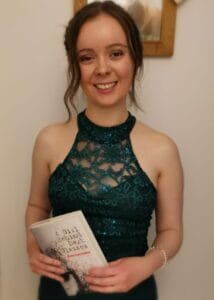Covid-19 made the world a more inclusive place for people like me
By Jessica Taylor-Bearman

Would it be strange for you to hear that covid-19 made me feel more connected to the world? That it made me feel like we were all in the same boat and that I was experiencing life in a whole new way?
I watched the press conference that the prime minister did on the 23rd March 2020 announcing the first national lockdown, with a mixture of terror and relief. The numbers of covid cases had been rising at an enormous rate and the death toll was looking grim.
As one of the clinically vulnerable, I did not leave the flat we’d just moved into, for four months. I watched as the area I lived in became a ghost town and the busy main road next to us went suddenly quiet for the first time.
I have lived a more severe form of lockdown for the past fifteen years, half of my life. I came down with Myalgic Encephalomyelitis from a virus I caught just before my fifteenth birthday. I went from being an active schoolgirl to living in hospital, unable to speak or move and fed through a nasal gastric tube. For twelve of the years that I’ve been ill, my entire world was the size of the four walls of my one room. I’ve been mainly housebound for the past three years, only managing to leave it a couple of times a week at a push.
I live with a debilitating exhaustion which seeps into my bones, causing agony throughout my body which also makes it hard to think straight. But I’ve somehow managed to become a bestselling – and even award-winning – author from my sickbed. I have worked on my books from my reclining wheelchair, my bed and even in hospital.
When the whole country was put into a national lockdown, I went into auto pilot. I spent my limited energy checking up on my family and friends whilst looking after an eight-month baby because I understood the isolation that everyone was about to get hit with; I had experienced it for a long time.
I often heard people refer to lockdown as being in a prison, that they were being prevented from living, which was tough for me to hear because my whole adult life had been within much harsher restrictions, but I’d always felt I’d still lived.

It was completely different to what I’d faced because I’d been on my own. In lockdown there were online quiz nights, zoom meetings with friends, theatre shows, comedy nights and a virtual trip to the zoo! I even got to go to the awards ceremony where I won Best Non-Fiction 2020 without being seriously unwell for weeks afterwards! It was as if the world suddenly became accessible and inclusive for people like me.
I wrote my second book A Girl in One Room in the middle of lockdown and released it in another lockdown, I was able to become one of the founding speakers with the National Teen Book Club and subsequently got asked to become a part of Speakers for Schools, a leading social mobility charity aiming to level the playing field in education and employment for disadvantaged young people. I gave my first virtual talk on accessibility within publishing, despite starting to crash towards the end and feeling words slip out of my mind as the exhaustion caused my brain to completely shut down. I had to lay in silence before having to go to A&E for more treatment.
All these things happened from my home, whilst delicately balancing the myriad of symptoms that I face daily and bizarrely enough, it’s all thanks to the pandemic that I even got the opportunity.
Watch Jessica’s Access All Areas virtual broadcast: